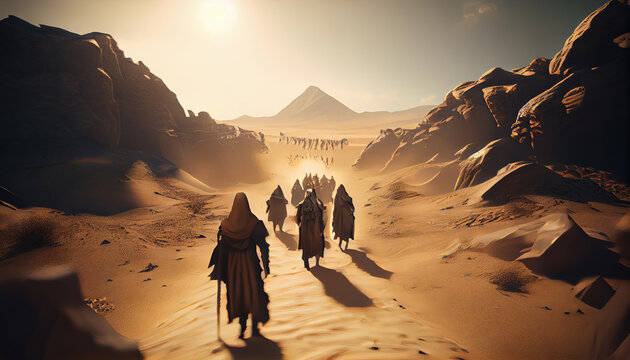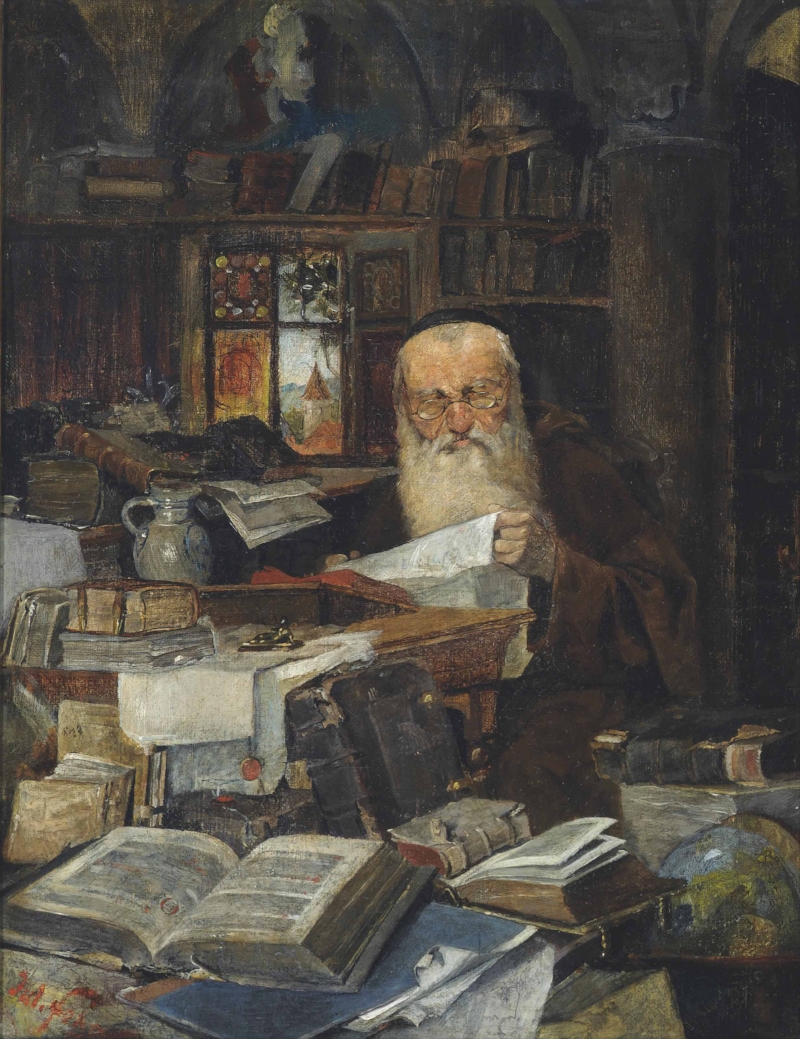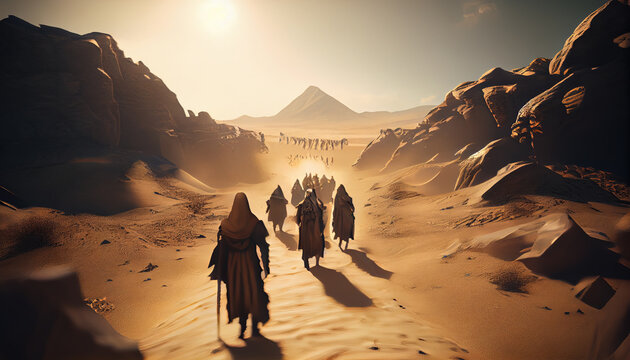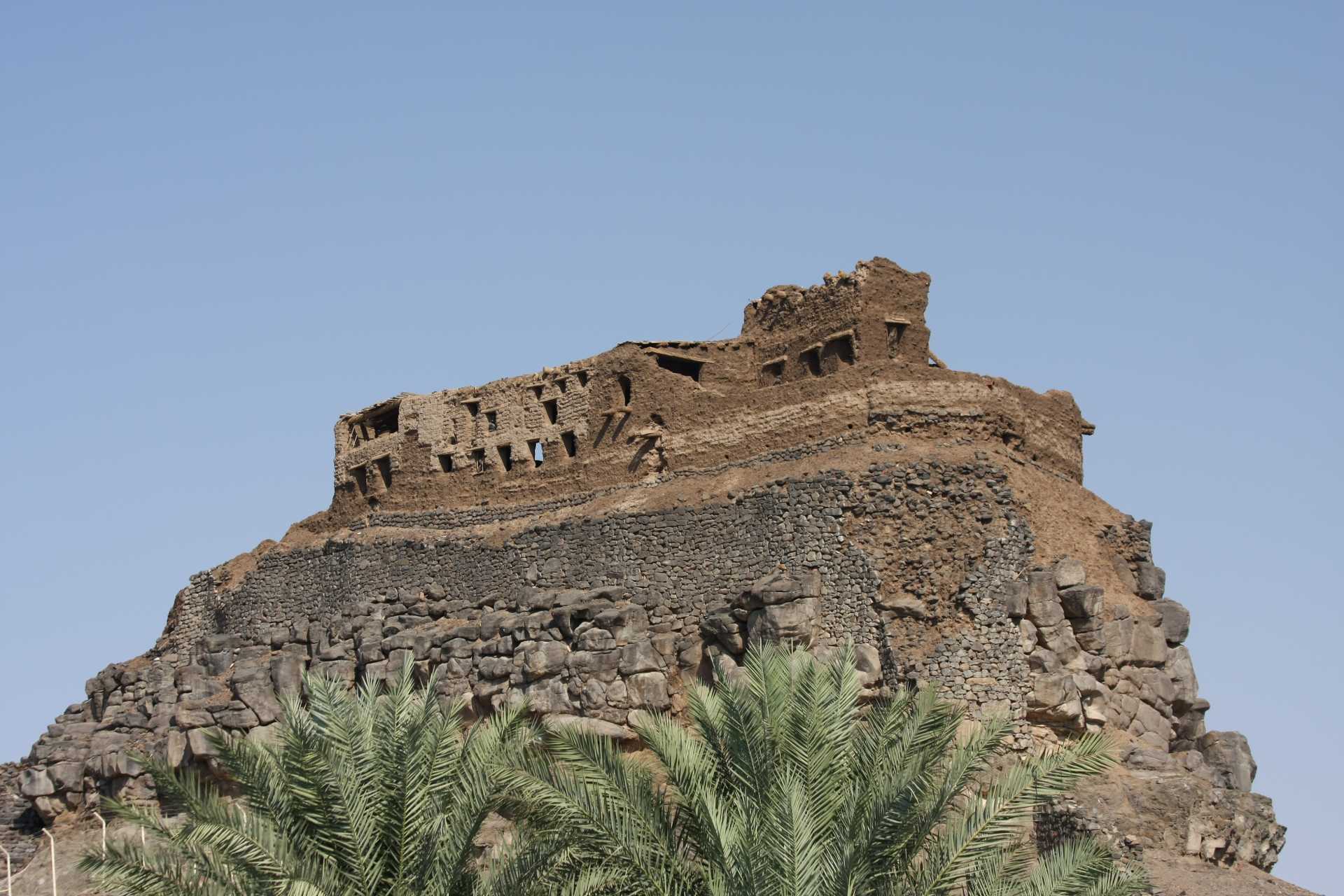
WHAT IS ISRA'ILIYAT? WHAT IS IT NOT?
In Islamic culture, the term "Isra'iliyat" refers to events experienced by the Children of Israel and passed down to later generations. As mentioned in the Qur'an, "Israel" is the name of Jacob (the Prophet Yaqub), and his descendants are called the Children of Israel (Bani Isra'il).
Isra'iliyat is either mentioned in the Qur'an and Hadiths or is conveyed through the texts and clergy of the divine religions. However, these are not exactly the same, as the Qur'an states that the Torah and the Gospel (Bible) as they exist today have been partially, if not entirely, altered.
Various Types of Isra'iliyat
The reports of Isra'iliyat pertain either to belief, practice, or advice (counsel). These reports are not only related to events that happened to previous communities but also include information about the universe, the unseen (ghayb), and the Day of Judgment.
From the perspective of their chain of transmission (sanad) and content (matn), Isra'iliyat reports can be authentic (sahih), weak (da'if), or fabricated (mawdu'). The reports of Isra'iliyat mentioned in the Qur'an and authentic Sunnah are accepted and reliable. The chain of transmission refers to the narrators, while the content describes the event.
For example, the narration of Abdallah ibn Amr ibn al-As in Sahih al-Bukhari (a collection of the teachings and sayings of the Prophet Muhammad), which mentions the prophecy of the coming of the Prophet Muhammad in previous sacred texts, falls into the first category, meaning it is authentic.
Reports about the angels carrying the Throne (Arsh) and the creation of lightning by the flapping of their wings are considered weak.
The report that Nebuchadnezzar was sent as a punishment to the Israelites and ruled for 700 years is fabricated.

Legends?
Some Isra'iliyat reports contradict the core of the religion. These are rejected and cannot be accepted. The stories about Solomon (the Prophet Sulaiman) losing his ring, Lot's (the Prophet Lut) daughters, and David (the Prophet Dawud) and Bathsheba are fabrications.
The tale of Uj ibn Unuq (Og), a stubborn disbeliever who lived before Noah (the Prophet Nuh) and was so tall that he could grill a fish he caught from the bottom of the ocean by holding it up to the sun, is also of this kind.
Some Isra'iliyat reports are neither confirmed nor denied; they remain in a state of tawaqquf (pause from passing a ruling). They cannot be verified or falsified. These reports consist of some lengthy stories passed down by the People of the Book (Ahl al-Kitab). The stories mentioned in the commentaries and histories regarding the murder in Surah al-Baqarah, as well as the reports about Nimrod and Korah in historical records, are of this nature.
Neither Confirmation Nor Rejection!
The Prophet Muhammad said, "There is no harm in narrating from the Children of Israel, for among them are many remarkable events." Numerous stories about the Children of Israel that he narrated can be found in the hadith collections.
In another hadith, it is stated, "If the People of the Book relate something to you, do not confirm or deny it! That is, neither affirm it nor reject it! Say, 'We believe in Allah and His prophets and what has been revealed to them.'"
This is because if what is confirmed has been altered, one would be complicit in the alteration. If what is rejected is in accordance with the original divine scripture, then divine speech would be rejected and denied.

The Truth and the Falsehood
The Prophet Muhammad allowed some of his companions (sahaba) to read the old sacred texts. The companion Abdallah ibn Salam, who converted to Islam from Judaism, as well as Abdallah ibn Abbas, Abdallah ibn Amr ibn As, Tamim al-Dari, and from the Tabi'in (successors, the generation of Muslims who followed the companions), Ka'b al-Ahbar and Wahb ibn Munabbih, were familiar with the sacred books and knew the rulings of the previous religions. (Ahbar is the plural form of "hibr," a term used for the scribes of the Torah. It is mentioned in the Qur'an: Surah Al-Ma'idah, 44).
Abdullah ibn Salam was personally given permission by the Prophet to read the Torah. Although Abu Huraira did not read the Torah, it is said that due to his interest in listening and his strong memory, he was one of those most knowledgeable about its content. These were individuals capable of distinguishing between right and wrong.
Among the non-Arab Muslims, known as Mawali, many Islamic scholars, especially hadith scholars, emerged. It is said that the Isra'iliyat narrations heard from them gradually permeated into Islam, both the true and the false. Later scholars pointed out these issues.
If My Brother Moses Were Alive…
On the other hand, the Prophet Muhammad once saw a Torah scroll in the hands of Umar ibn al-Khattab, and another time in the hands of Hafsa bint Umar, and forbade them from reading it. This incident likely occurred when Umar was newly converted to Islam. The Prophet said, "If my brother Moses were alive, he would follow me," because the Qur'an informs us that all the prophets were made to take an oath concerning this (Surah Al-Imran: 81).
These incidents show that it is not appropriate for those who do not have the ability or whose faith is not yet deep to occupy themselves with the sacred books of the Jews and Christians. For this reason, the Islamic scholars did not allow the common people to read them.
It is well known that the Prophet Muhammad stood up for the Torah. From this, it has been inferred that one should stand up for divine books, including the Qur'an. The fiqh books state that it is disliked (makruh) for someone in a state of major ritual impurity (junub) to read the Torah, Psalms (Zabur), and Gospel. All of this indicates that the Torah, Psalms, and Gospel have not been entirely altered; there are parts within them that remain unchanged, though they are not known.
The Islamic scholars have deemed the verses of the Qur'an and the Sunnah of the Prophet sufficient, and have not felt the need to refer to the Torah and Gospel as they exist today. They found the most accurate and clear forms of the legal rulings in the Qur'an and Sunnah.
The Story of Bahira
The Prophet Muhammad did not convey to his followers what he read from the Torah and the Gospel. Indeed, in both Mecca and Medina, where the formation of Islamic law took place, there were people from the People of the Book (Ahl al-Kitab) in these cities.
For instance, Waraqah ibn Nawfal, one of the earliest Muslims, was a Christian. He passed away shortly after the Prophet's mission began, but before the actual message was conveyed. There was a large Jewish community in Medina.
Some Orientalists claimed that the Prophet Muhammad heard the principles he established from a monk named Bahira during a trade journey to Syria. The Prophet went to Syria twice, once as a child. On both occasions, he returned from Bosra without entering Syria.
Moreover, it is impossible for a young man, who did not know any foreign languages at the time and was illiterate, to memorize and later convey the principles of Judaism and Christianity in such a short time.
There was no need to learn them, as these journeys were for trade purposes. This claim is similar to the polytheists' assertion that the Prophet learned what he preached from two Christian blacksmith slaves from Iraq whom he met in Mecca. It has been asked, if these slaves had such knowledge, why did they not claim prophethood themselves?

Cultural Transfer?
The common characteristics and similarities in the rulings of Judaism, Christianity, and Islam, often referred to as "Abrahamic religions" because of their reverence for Prophet Abraham (Ibrahim), did not emerge through cultural transfer, cultural influence, borrowing, or imitation. They are considered manifestations of the sacred cultural heritage that draw from the same source and affirm each other.
The truths found in the Torah and the Gospel were revealed to the Prophet Muhammad through divine revelation and inspiration. After the period of revelation, the rulings extracted from these books by the People of the Book or Muslims hold no significance in Islam.
For the rulings of previous shari'ahs (religious laws) to be considered valid evidence, they must be mentioned in the Qur'an and Sunnah, and there must be no evidence that they have been abrogated. If Isra'iliyat information is narrated in the Qur'an or mentioned in the Sunnah, it becomes a definitive ruling.
Önceki Yazılar
-
DEATH IS CERTAIN, INHERITANCE IS LAWFUL!25.06.2025
-
THE SECRET OF THE OTTOMAN COAT OF ARMS18.06.2025
-
OMAR KHAYYAM: A POET OF WINE OR THE PRIDE OF SCIENCE?11.06.2025
-
CRYPTO JEWS IN TURKEY4.06.2025
-
A FALSE MESSIAH IN ANATOLIA28.05.2025
-
WAS SHAH ISMAIL A TURK?21.05.2025
-
THE COMMON PASSWORD OF MUSLIMS14.05.2025
-
WERE THE OTTOMANS ILLITERATE?7.05.2025
-
OTTOMAN RULE BENEFITED THE HUNGARIANS30.04.2025
-
An alternative state to Istanbul in Anatolia: THE ANKARA ASSEMBLY23.04.2025